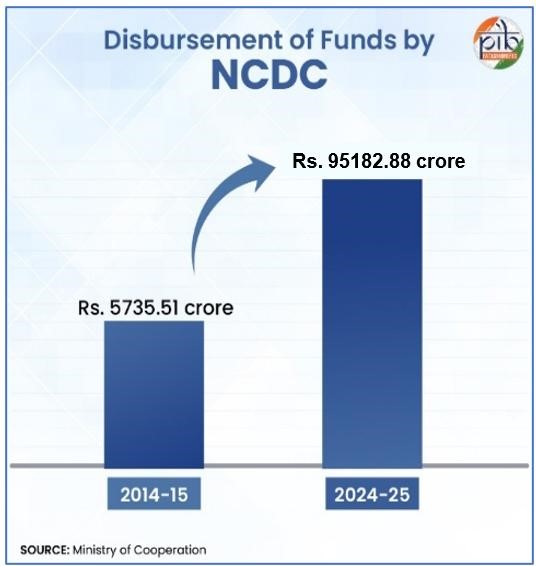7667766266
enquiry@shankarias.in
Mains: GS II –Statutory bodies| Government Policies and Interventions for Development in various sectors and Issues arising out of their Design and Implementation.
Why in News?
Recently, the government has increased the funding and schemes for the cooperative sector to further develop it and increase the number of cooperatives in the country.
What is National Cooperative Development Corporation(NCDC)?

What are the schemes and efforts of NCDC?
|
Successful Cooperative Models of India |
|
What are the schemes of other ministries?

What are the recent developments in cooperative sector?
Reference